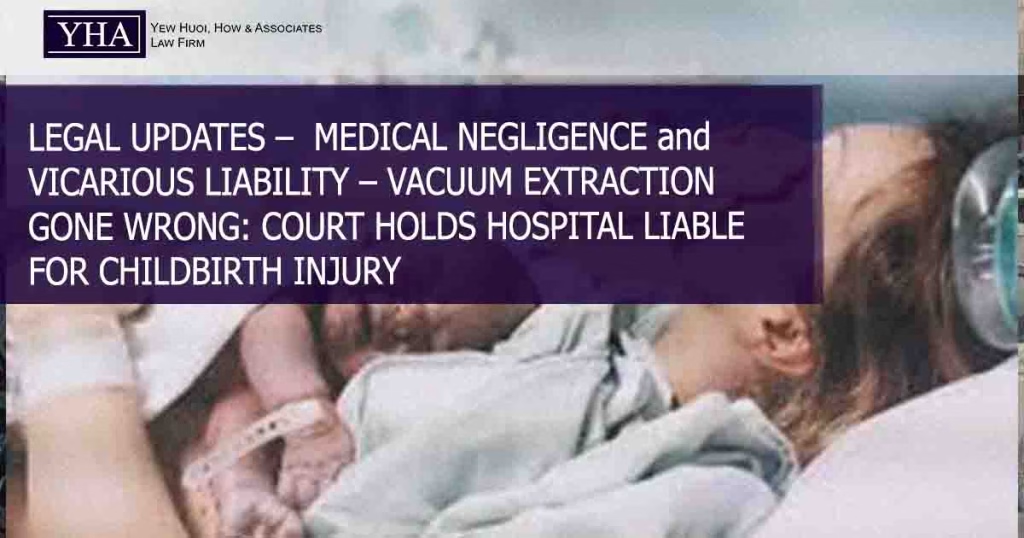1. Summary and Facts
In Airis Nurhana bt Alfian (an infant suing by her father and litigation representative Alfian bin Zainudin) v Darul Aiman Sdn Bhd & Anor [2024] 6 MLJ 552 the appellant, an infant, suffered a brachial plexus injury during her birth in September 2013 at Putra Medical Centre (PMC), owned by R1. The delivery was performed by R2, a medical officer (not a specialist) employed by PMC. The appellant alleged that the injury was caused by excessive traction applied during vacuum delivery in the presence of shoulder dystocia. The High Court dismissed the medical negligence suit, ruling that the appellant’s mother, NAZ, was exhausted, justifying vacuum extraction, shoulder dystocia did not occur, the injury was not caused by excessive traction. Therefore, the appellant appealed against the findings on liability and quantum of damages.
2. Legal issues
i. Whether R2 was negligent in performing the vacuum delivery?
ii. Did R2 wrongly decide to use vacuum extraction despite the absence of maternal exhaustion?
iii. Did R2’s action result in brachial plexus injury?
iv. Whether R1 is vicariously liable for R2’s negligence?
v. Did the expert report be considered properly?
3. Court Findings
• The Court of Appeal (COA) overturned the High Court’s decision and held both R1 and R2 liable for negligence.
• Firstly, the COA found that Maternal Exhaustion not proven, the learned judge wrongly found maternal exhaustion, despite R2 never plead it as a reason for vacuum extraction. No evidence was adduced to show that NAZ was exhausted or and/or agreed to the vacuum extraction.
• The respondents failed to disprove the expert’s report. It was confirmed that brachial plexus injuries are commonly caused by excessive traction during vacuum or forceps extraction in shoulder dystocia cases.
• It was crystal clear that R2’s negligently proceed with vacuum extraction without maternal exhaustion and using excessive traction in the presence of shoulder dystocia.
• When deciding vicarious liability of R1, the COA ruled that R1 is liable referring to Various Claimants v Catholic Child Welfare Society [2013] 2 AC 1 and Cox v Ministry of Justice [2016] AC 660 as R1 benefitted financially from R2’s services, NAZ did not choose R2 individually, she chose PMC which then assigned R2 and PMC created the risk by employing R2 despite her lack of specialist qualifications.
• R1’s caim for contribution and indemnity had to be dismissed because R1 as the employer generate profits from its employee, ought to bear potential risk arising from the activity.
• R1 as employer has the relevant control over its employee to mitigate the risk of similar harm in the future.
4. Practical Implications
The Court of Appeal’s decision reinforces accountability in medical negligence cases, clarifies vicarious liability for hospitals, and ensures fair compensation for victims of negligent medical treatment.

